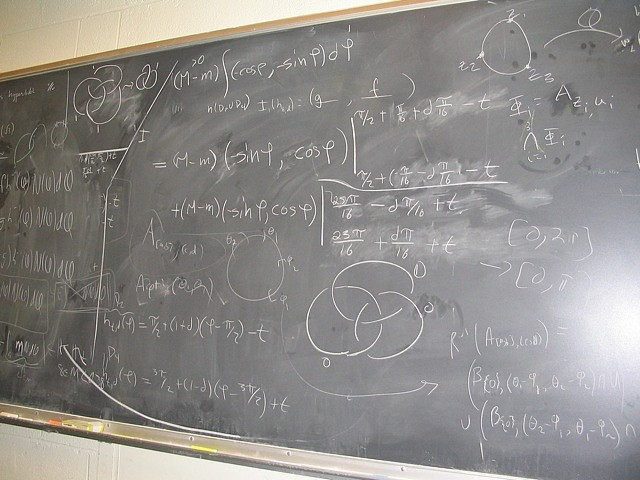Too Much Math Turns Biologists Off, Study Finds

Don't be fooled by their PhDs -- biologists struggle with math too.
But University of Bristol researchers were surprised to find just how strong that aversion to equations is. In a study published Monday in the Proceedings of the National Academy of Sciences, they found that lots of math expressions in the main body of a research paper meant it was cited less by other scientists.
In fact, for each additional equation in a given paper, the number of times it was cited in other papers went down by 28 percent.
The biologists I know don't like maths, but I only expected an effect of maybe five percent, co-author Andrew Higginson said in a telephone interview.
To gauge the dampening effect of math on biology papers, Higginson and his colleague Tim Fawcett measured equation density by counting the number of mathematical expressions in a research paper and dividing by the number of pages. They then looked at the number of times the paper was cited.
Higginson says that in the U.K., the required math for undergraduate biology students will generally focus on statistics.
But theoretical models aren't statistical, they're like calculus. And it's possible to to get a PhD without doing calculus, Higginson says.
While most biology research is empirical - relying on observation and experimentation - theoretical models, such as an equation modeling population changes in foxes and rabbits as the former preys on the latter, allow researchers to better interpret their observations and to test predictions.
To bridge the divide, Higginson and Fawcett think it's primarily important for biologists doing theoretical work to explain their models in a way that's easily understood by a wider audience.
But surely the solution to the heart of the problem involves sending biology students back to the blackboard for a longer course of differential equations?
Perhaps not. While aiming to change how math is taught to biology students is a laudable goal, any attempts to change educational programs would require considerable time and resources, would be unlikely to yield results for years or decades, would have to compete with other topics for curriculum space, and would need continuous development to hone their effectiveness, they write.
In the meantime, explaining models with simpler language while placing equations in the appendix - which Higginson and Fawcett found does not affect how often a paper is cited - may be the most practical route.
SOURCE: Fawcett et al. Heavy use of equations impedes communication among biologists. Proc. Natl Acad. Sci. USA. In press.
© Copyright IBTimes 2025. All rights reserved.





















